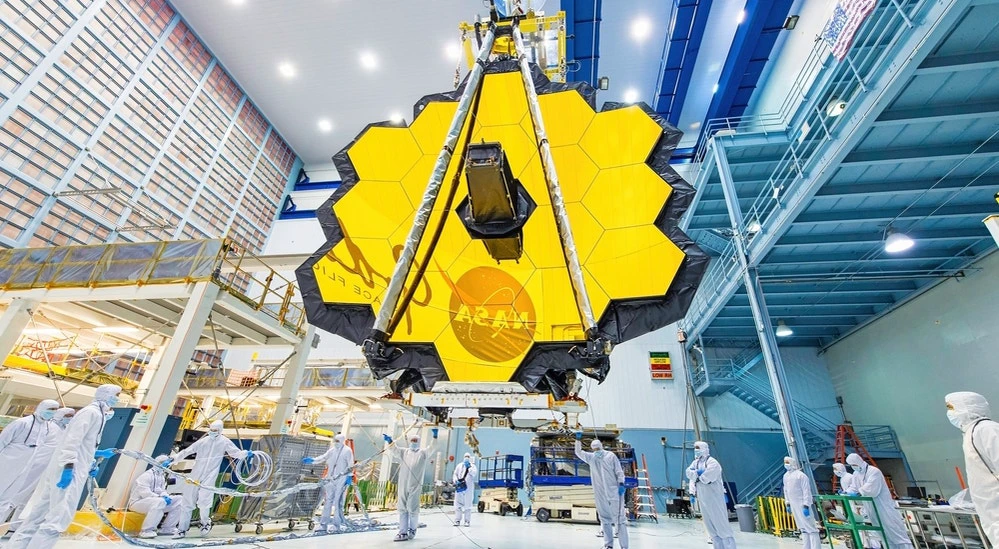World’s Most Powerful Telescope James Webb Is Now On Its New Mission To Hunt For Exomoons And Peek At Early Galaxies

The James Webb Space Telescope (JWST) operated by NASA is set to embark on its Cycle 3 mission, exploring a wide range of celestial phenomena, including exomoons, exoplanets, supermassive black holes, and early galaxies.
What Happened: The Space Telescope Science Institute has revealed the astronomy projects that will be conducted using the JWST over the next two years, reported Space.com on Monday. This includes 253 General Observers (GO) programs that will utilize the telescope for a collective 5,500 hours during Cycle 3, from July 2024 to June 2025.
These projects will build on the scientific advancements made during the JWST’s first two years of operation, focusing on exomoons, exoplanets, supermassive black holes, and early galaxies. The telescope will also study large-scale structures in the universe to uncover details about its accelerating expansion and the enigmatic force driving this movement.
One of the teams selected for Cycle 3 will be searching for exomoons outside our solar system. Led by David Kipping, an assistant professor of astronomy at Columbia University, this team will focus on the exomoon search around the exoplanet Kepler-167e, located 1,115 light-years from Earth.
Another key area of study will be exoplanets themselves, with a focus on their potential to support life. Several projects will investigate the conditions necessary for life on exoplanets, including one called “Constraining the atmosphere of the terrestrial exoplanet TOI-4481b.”
Furthermore, the JWST’s Cycle 3 will contribute to our understanding of supermassive black holes. This will include the investigation of quasars in the early universe and the nature of the first black holes, potentially shedding light on how these cosmic titans grew to their observed tremendous masses, even before the universe was 1 billion years old.





